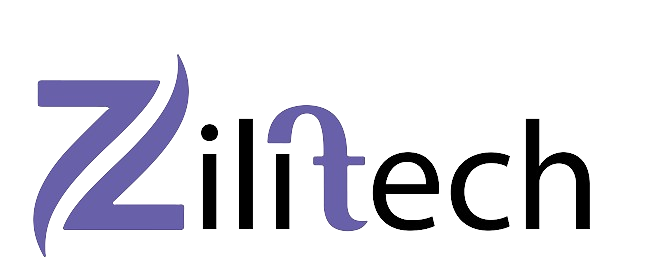In an increasingly digital world, colleges are streamlining their admission processes through online admission systems. These systems have revolutionized the way institutions handle applications, offering a blend of convenience, efficiency, and enhanced data security. But what makes a great online admission system, and which ones stand out? Let’s dive into the world of online admissions to uncover the best systems for colleges.
What is an Online Admission System?
An online admission system is a digital platform that manages the entire process of college admissions, from application submission to final enrollment. It replaces traditional paper-based methods with an electronic process that is more efficient and user-friendly. These systems typically include features like online application forms, document uploads, payment processing, and automated communication tools.
Comparison with Traditional Admission Processes
Traditional admissions often involve cumbersome paperwork, manual data entry, and long processing times. Online systems eliminate these inefficiencies by digitizing the application process, enabling quick data retrieval, real-time updates, and better applicant tracking.
Advantages of Using Online Admission Systems
Enhanced Accessibility and Convenience
Online systems allow applicants to complete and submit their applications from anywhere in the world, at any time. This flexibility is particularly beneficial for international students and those with limited access to physical college offices.
Cost and Time Efficiency
Colleges save on costs related to paper, printing, and postage. Additionally, the time taken to process applications is significantly reduced, allowing for quicker decision-making and communication with applicants.
Improved Data Management and Security
These systems provide a secure environment for storing applicant data. Advanced encryption and secure access protocols protect sensitive information from unauthorized access and data breaches.
Enhanced Communication and Collaboration
Online systems facilitate better communication between applicants and college staff through automated emails, reminders, and updates. They also support collaborative work among admission teams, improving overall efficiency.
Key Features of an Effective Online Admission System
User-Friendly Interface
A straightforward, intuitive interface ensures that applicants and staff can navigate the system without technical difficulties, reducing frustration and errors.
Robust Application Tracking
Effective systems offer comprehensive tracking of applications, allowing both applicants and staff to monitor progress and status in real time.
Secure Payment Processing
Integrated payment gateways enable secure transaction processing for application fees, reducing the risk of fraud and ensuring smooth financial management.
Integration with Other Educational Platforms
A good admission system can integrate with learning management systems (LMS), student information systems (SIS), and other institutional platforms, creating a seamless data flow across departments.
Customizable Forms and Workflows
Customizable application forms and workflows allow colleges to tailor the system to their specific needs, accommodating various programs and admission criteria.
Top Online Admission Systems for Colleges
1. Slate by Technolutions
Features and Benefits: Slate is renowned for its comprehensive application management capabilities, including customizable forms, robust analytics, and seamless CRM integration. It supports complex application processes and offers a user-friendly interface for applicants and administrators.
Ideal Use Cases: Slate is ideal for colleges looking for a highly customizable and powerful system to handle large volumes of applications and complex workflows.
2. Ellucian CRM Recruit
Features and Benefits: Ellucian CRM Recruit integrates with Ellucian’s suite of educational software, offering a unified approach to student recruitment and enrollment. It provides real-time insights and efficient communication tools, enhancing the overall admission experience.
Ideal Use Cases: This system is best suited for institutions already using Ellucian’s products, seeking an integrated solution for recruitment and admissions.
3. TargetX
Features and Benefits: TargetX specializes in student lifecycle management, from recruitment to alumni engagement. Its admission module offers advanced features like application tracking, document management, and communication automation, all within a cloud-based platform.
Ideal Use Cases: TargetX is perfect for colleges looking for a holistic approach to student relationship management, beyond just admissions.
4. Embark
Features and Benefits: Embark provides a robust, user-friendly platform designed for ease of use by both applicants and administrators. It supports multiple program applications, offers integrated decision-making tools, and ensures secure data handling.
Ideal Use Cases: Embark is great for institutions needing a straightforward, yet effective system to manage diverse application processes.
5. Liaison EMP (Enrollment Marketing Platform)
Features and Benefits: Liaison EMP focuses on enhancing enrollment marketing efforts through personalized communication and advanced analytics. It integrates well with other CRM systems and supports targeted recruitment strategies.
Ideal Use Cases: This system is suited for colleges aiming to boost their marketing efforts alongside their admission processes.
How to Choose the Right Online Admission System for Your College
Assessing Institutional Needs
Understand your institution’s specific needs regarding application volume, types of programs, and existing technological infrastructure. A thorough needs assessment ensures you choose a system that aligns with your operational goals.
Evaluating Budget Constraints
Consider the cost implications, including subscription fees, implementation costs, and potential training expenses. Balancing cost with functionality is crucial for making a sustainable choice.
Considering User Feedback and Reviews
Look for user reviews and case studies from similar institutions. Real-world feedback provides insights into the system’s performance and potential challenges.
Ensuring Technical Support and Training
Ensure the provider offers robust technical support and comprehensive training for staff. Effective support minimizes downtime and helps your team get the most out of the system.
Implementing an Online Admission System: Best Practices
Planning and Goal Setting
Start with a clear plan that outlines your objectives, timelines, and key milestones. Set realistic goals to measure the system’s success.
Training Staff and Faculty
Invest in training sessions for staff and faculty to familiarize them with the system’s features and functionalities. Well-trained personnel can leverage the system’s full potential.
Testing and Feedback Collection
Conduct thorough testing before full-scale implementation. Collect feedback from users during the testing phase to identify any issues and make necessary adjustments.
Continuous Improvement and Updates
Regularly update the system and refine workflows based on user feedback and evolving needs. Continuous improvement ensures the system remains effective and user-friendly.
Challenges in Using Online Admission Systems
Technical Difficulties
Systems may encounter technical glitches or downtime. Ensure you have a solid IT support structure to address these issues promptly.
Data Privacy Concerns
Handling sensitive applicant information requires stringent data privacy measures. Adhere to regulations like GDPR and FERPA to protect applicant data.
User Resistance to Change
Some users may resist transitioning to a new system. Address their concerns through training, support, and clear communication about the system’s benefits.
Solutions to Overcome These Challenges
Develop a comprehensive support plan, including training, user guides, and a dedicated helpdesk. Regularly communicate updates and improvements to build user confidence.
The Future of Online Admission Systems
Trends in Technology and Automation
Expect more advanced automation features, such as AI-driven application screening and predictive analytics. These innovations will further streamline admissions and improve decision-making processes.
Potential Innovations and Improvements
Future systems may include enhanced virtual reality (VR) experiences for campus tours and more personalized applicant interactions through AI chatbots.
Impact on Global Education
As online admission systems evolve, they will facilitate greater access to global education opportunities, breaking down geographical barriers and expanding the reach of institutions worldwide.
Conclusion
Online admission systems have transformed the way colleges handle applications, offering a range of benefits from enhanced efficiency to improved data security. By carefully selecting and implementing the right system, institutions can streamline their admission processes, improve applicant experiences, and stay competitive in the evolving educational landscape.
FAQs
1. How do online admission systems enhance the application process?
Online admission systems streamline application management through automated workflows, real-time updates, and user-friendly interfaces, making the process faster and more efficient.
2. Can online admission systems integrate with existing college databases?
Yes, most modern systems offer integration capabilities with existing databases and other educational software, ensuring seamless data flow and management.
3. What are the security measures in online admission systems?
These systems employ advanced encryption, secure access controls, and compliance with data protection regulations to safeguard applicant information.
4. How do colleges transition from traditional to online admission systems?
Transitioning involves careful planning, staff training, thorough testing, and continuous support to ensure a smooth shift from traditional methods to the new system.
5. What are the cost implications of adopting an online admission system?
Costs vary depending on the system’s features and implementation requirements. While there are upfront expenses, the long-term savings in time and resources often justify the investment.





